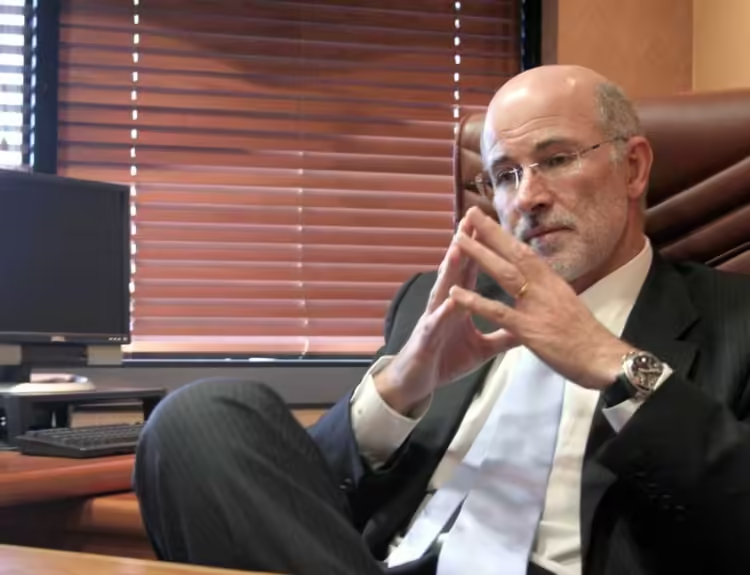Vimal Shah, a Kenyan billionaire businessman, serves as the chairman of Bidco Africa, where he has played a pivotal role in the company’s expansion into new markets and product lines.
Headquartered in Thika, Kenya, Bidco is a multinational consumer goods company with over 40 brands and a presence in 17 countries across East, Central, and Southern Africa. The company manufactures a range of products, including edible oils, detergents, soaps, margarine, and baking powder.
Recently, under Vimal’s leadership, Bidco acquired the entire issued share capital of Suntory Beverage and Food Kenya, the company behind Ribena and Lucozade.
This acquisition, which received unconditional approval from the Competition Authority of Kenya (CAK), aims to address Suntory’s underperformance by leveraging Bidco’s expertise in production and commercialization.
Despite Suntory’s market share being less than 2% in an industry dominated by Coca-Cola Beverages Africa, the CAK noted that the acquisition would not raise public interest concerns, particularly regarding employment. Suntory Kenya’s employees will be retained under comparable terms, ensuring a smooth transition.
Vimal, along with his father Bhimji and brother Tarun, share equal ownership in Bidco, having started and grown the company together. Although Vimal is no longer involved in day-to-day operations as CEO, he continues to play a crucial role in the company’s growth and management as chairman.
He takes pride in transforming Bidco from a small soap manufacturer into a multinational company, and many entrepreneurs turn to him for business advice. Vimal believes that innovation and authenticity are key to Bidco’s success, emphasizing the importance of standing out in a competitive marketplace.
“You have to learn how to claim authenticity and expression in a common marketplace that is very competitive. Communicating about your availability is important,” he once told entrepreneurs during an SME conference.
Vimal also advocates for strong marketing strategies, honesty with partners, and competence as the cornerstones of his and Bidco’s success.
In 2013, Forbes named Vimal the richest man in East Africa, with a net worth of $1.6 billion, a ranking he playfully dismissed, stating, “For that kind of money, I would sell you my business.” His main motivator, however, is the ability to make a difference in people’s lives by sharing his extensive knowledge and skills with budding entrepreneurs.
“Money motivates you for a certain time, but when your basic needs are met, it doesn’t motivate you anymore. My biggest inspiration today is to arouse the leader inside every other human being. I want them to know that they too can achieve their dreams. I was born here. I went to school here. Even for university, I did not go to Harvard—I studied here. You too can do it,” he shared in a past interview.
It is perhaps this drive to inspire others that led him to start a blog, where he candidly shares his life as an entrepreneur in Africa, offering valuable lessons and anecdotes from his entrepreneurial journey.
Through his blog, Vimal extends his influence beyond Bidco Africa, reaching out to entrepreneurs across various sectors and regions.
Early life
Vimal Shah was born in 1960 in Nyeri, Kenya. Shah grew up in an entrepreneurial family, watching his father start several businesses including a garment manufacturing venture in 1970. This shaped him and introduced him and his brother to business at a tender age.
Vimal studied at Jamhuri High School in Nairobi where he did his O levels. Later, he attended the United States International University where he graduated with a Bachelor of Science degree in Business Administration (Accounting and Finance Major).
During his time at the university, he explored the integration of cotton production with textile manufacturing in Kenya. His university projects focused on enhancing the family business’s local value chain for cotton, from raw materials to finished products. These studies would come in handy later on in his career.
Bidco Africa
Bidco Africa was founded in 1970 by Bhimji Depar Shah, Vimal’s father, to manufacture garments.
Vimal was only 22 and fresh out of university when he joined his family’s garment manufacturing business.
At that time, the Shahs imported cotton and produced garments that were exported as African prints to Europe.
However, the domestic market posed challenges for Bidco and other local garment manufacturers, as cotton was losing popularity to polyester fabrics imported from the Far East, which were preferred for their convenience as wash-and-wear materials. “Cotton was not in vogue,” Vimal said.
Faced with declining local demand, which often resulted in garments being sold at throwaway prices, and the frustrations of dealing with promissory notes instead of cash from local traders, Vimal recognised that the business model was becoming unsustainable.
“After 120 days, when they (traders) were supposed to pay, they would instead ask for an extension of 60 days even if they had already sold the products. We were turning into a bank. We were a credit business,” he recalled.
This realization prompted the family to explore new opportunities, leading them to discover the potential of cotton seeds for producing cooking oil and soap.
Vimal, his father, and his brother put together a business plan and approached banks to finance the family’s new oil seeds enterprise. However, although the banks liked Vimal’s idea, they were skeptical owing to his lack of experience.
“How do you think you will survive? Unilever will kill you,” he recalled the lenders’ sentiments.
Consequently, the family decided to start small. In 1985, they pivoted from garment manufacturing to start a small soap factory in Thika. The company’s initial plan was to procure palm oil from Malaysia in bulk tankers and develop unique soap brands that were of better quality and more affordable than existing products.
To compete with industry giants like Unilever, Vimal focused on understanding consumer needs at the local level and used this data to develop multiproduct brands at various price points.
As Bidco’s market presence and distributor relationships strengthened, the company expanded its operations through strategic backward integration, covering the entire value chain from agriculture to finished products.
In 1991, Bidco opened its first large edible oil manufacturing plant in Thika, and in 1998, the company acquired the prominent brand Elianto from Unga Ltd, further amplifying its market share. In 2002, Bidco successfully acquired four Unilever brands, including the popular Kimbo and Cowboy cooking fat brands.
The early 2000s marked a period of rapid diversification for Bidco. In 2005, the company expanded its operations beyond Kenya by establishing Bidco Uganda Limited in Jinja.
As the company continued to diversify, it ventured into the personal care and beauty scene, launching its first line of such products in 2011, starting with the “Pure and Natural Bar” soap.
This was followed by the introduction of a series of new products, including detergents, laundry soaps, and more personal care items under brands like Nuru and Gaea.
In 2014, Bidco ventured into the animal feed industry, leveraging its expertise in agricultural products. The company invested in a state-of-the-art production line with the capacity to produce 100 tonnes of animal feed per day.
By 2017, Bidco had firmly established itself as a leader in the consumer goods sector, but the company was far from complacent.
Under Vimal’s leadership, Bidco embarked on an ambitious $200 million expansion plan aimed at further diversifying its product lines and increasing production capacity. This expansion included the construction of an industrial park in Ruiru, which housed new production facilities for noodles and beverages.
This period also saw Bidco entering into a joint venture with Land O’Lakes, a Fortune 500 company, to produce animal feeds.
In February 2019, the BBC reported Bidco Africa’s expansion into the food and beverage category, a move that has now been solidified with the acquisition of Suntory Beverage and Food Kenya.
Leadership and awards
Vimal Shah rose to the position of CEO, stepping down in 2017. He then took up the role of board chairman, a position he still holds.
Led by Vimal, Bidco has grown into one of Africa’s largest and fastest-growing manufacturers of consumer products, with a wide range of product categories, including edible oils, cooking fats, margarine, baking products, hygiene products, detergents, laundry bars, and animal feeds. The multinational has a 49% share of the edible oils market in Kenya.
Vimal has held various leadership roles outside Bidco, including serving as chairman of the Kenya Association of Manufacturers and the Kenya Private Sector Alliance. His contributions have been recognized with several awards, including the prestigious Chief of the Order of the Burning Spear (C.B.S.) and the Ernst & Young Entrepreneur of the Year award. Moreover, on June 7, 2024, he was appointed Chancellor of Maasai Mara University.
Philanthropy
Under Vimal’s leadership, Bidco has undertaken several social responsibility projects, including supporting the Tony Elumelu Foundation and the Starehe Girls Education Fund.
In 2023, Bidco donated several items from the company’s brands to new mothers at the Kenyatta National Hospital. Additionally, during the peak of the COVID-19 pandemic, Bidco donated a consignment of goods worth over KSh1.5 million (about $11,600) to residents of the Kibera slums.
Moreover, in February 2013, Bidco selected 10 Kenyan girls from humble backgrounds and funded their high school education at Starehe Girls Centre.
Vimal is married to Manda Shah. The pair have one son, Soham Shah, who was born in 1998.






